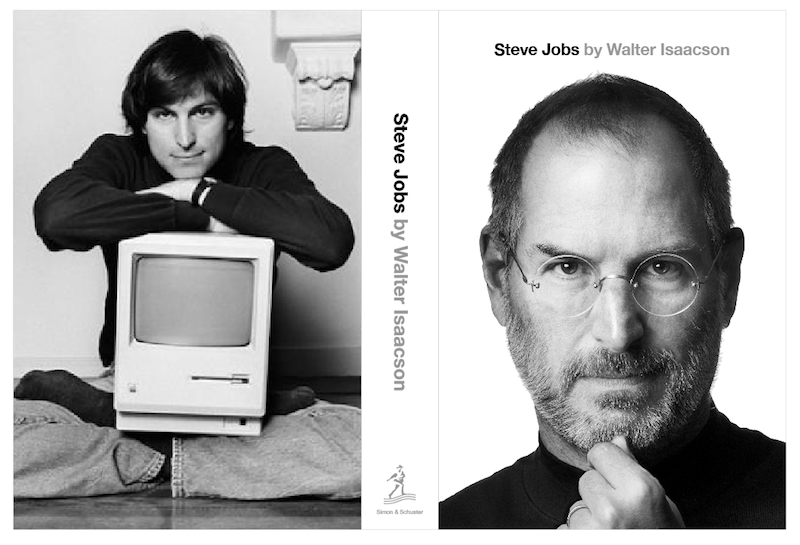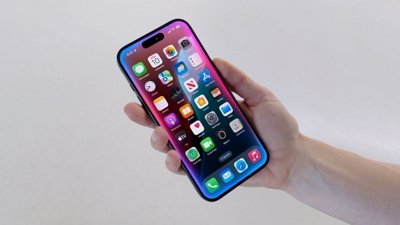Isaacson participated in a question-and-answer session with the Commonwealth Club in San Francisco, Calif. Among the more than 500 people in attendance was analyst Brian Marshall with ISI Group, who shared details of the event on Thursday.
The one thing that Jobs wouldn't reveal in their numerous interviews, Isaacson said, was his thoughts on philanthropy and what he would do with his billions of dollars after he died. One example cited was Jobs's refusal to participate in "The Giving Pledge," a campaign started by billionaires Bill Gates and Warren Buffett, which asks the richest people in America to donate most of their money to philanthropic causes.
The refusal of Jobs to talk about philanthropy was called out earlier this year, before the Apple co-founder passed away, in an editorial in The New York Times by Andrew Ross Sorkin entitled "The Mystery of Steve Jobs's Public Giving." Sorkin questioned why there is "no public record" of Jobs donating any of his money to charity, despite the fact that he was worth billions of dollars.
U2 lead singer Bono quickly came to the defense of Jobs, and wrote a letter to the editor of the Times defending his contribution to fight AIDS in Africa. Bono is the founder of (Product)RED, a charity that battles AIDS, which Apple has supported with special red iPod models since 2006.
Bono revealed that Apple's participation in the Global Fund to Fight AIDS was the largest of any company in the world, and that tens of millions of dollars were donated to H.I.V. testing, treatment and counseling.
"Just because he's been extremely busy doesn't mean that he and his wife, Laurene, have not been thinking about these things," Bono wrote. "You don't have to be a friend of his to know what a private person he is or that he doesn't do things by halves."
Aside from Jobs's privacy on philanthropy, Isaacson also spoke with the Commonwealth Club about content that was missing from the book. He said that any comments that were hurtful to individuals and served no purpose in the book were left out. One error in the book is that Burl Smith is a hardware engineer, not a software engineer.
The biographer revealed that he would write "Steve Jobs" from 9 p.m. until between 2 and 3 a.m., and would use Dropbox to access the raw manuscript while he was on the road. Isaacson said he wrote the book under the assumption that Jobs would eventually read the finished product.
The author also said that Jobs didn't attempt to replace himself at Apple, but picked executives that would be able to sustain Apple's competitiveness after he was gone. Jobs reportedly told Isaacson that he felt his greatest creation was the company Apple, not any individual product.
Released in October, "Steve Jobs" has already become Amazon's best selling book of 2011. The book is available in a hardcover edition, as well as digitally on the Kindle platform and Apple's iBookstore.
 Neil Hughes
Neil Hughes







-m.jpg)






 Marko Zivkovic
Marko Zivkovic
 Malcolm Owen
Malcolm Owen

 Amber Neely
Amber Neely

 Wesley Hilliard
Wesley Hilliard











102 Comments
Further proof that Steve Jobs was a complete jerk.
EDIT: Changed punctuation because some people literally cannot see sarcasm! Strange!
Further proof that Steve Jobs was a complete jerk⸮
What somebody does with their money is nobody else's business.
A lot of that philanthropy stuff is just a bunch of rich people seeking publicity for themselves. Who's to say that Steve Jobs didn't donate a bunch of money to various causes anonymously? Maybe he wasn't an attention seeking whore like some other people who give money away.
And I also feel that the hurtful comments should have been included in the book, as hurtful comments always serve a purpose, otherwise they wouldn't have been made.
When I become rich, one of my goals is to become an anti-philanthropist.
I think that is totally understandable and in character (as in 'good character'). Those that talk a lot about their philanthropy always make me very suspicious.
Further proof that Steve Jobs was a complete jerk⸮
No, the exact opposite.
A philanthropist doesn't help others for his own fame. True charity is given without personal fanfare.
There is a strong likelihood that the couple were donating anonymously. Laurene Powell-Jobs is even more private than her deceased husband; only her tax preparer needs to know. Assuming they were donating anonymously before, she will probably continue to do so. There's no reason why she would go public with her philanthropic activities now. After all, she has been involved in non-profits for years (mostly education focused). Remember, Laurene Powell isn't a soccer mom. She worked at Merrill Lynch and has a Stanford MBA. Their wealth is probably tucked away in a private trust and there aren't public records for those, no probate court documents.
By donating anonymously, you have the personal satisfaction of having done something beneficial, without fielding requests from development managers from hundreds of others of charities.
I will point out that every single major charity (performing arts, museums, etc.) has anonymous donors at pretty much every single contribution level. Go to a symphony, opera, ballet, etc. and look at the program. Read the annual report from any large museum.
Contributing anonymously is far more common than a lot of people surmise.
Steve Jobs did contribute generously to the Woodside schools until the town of Woodside started jerking him around over the demolition permit of the Jackling Estate. Finally, he said enough and turned off the money spigot to the schools.